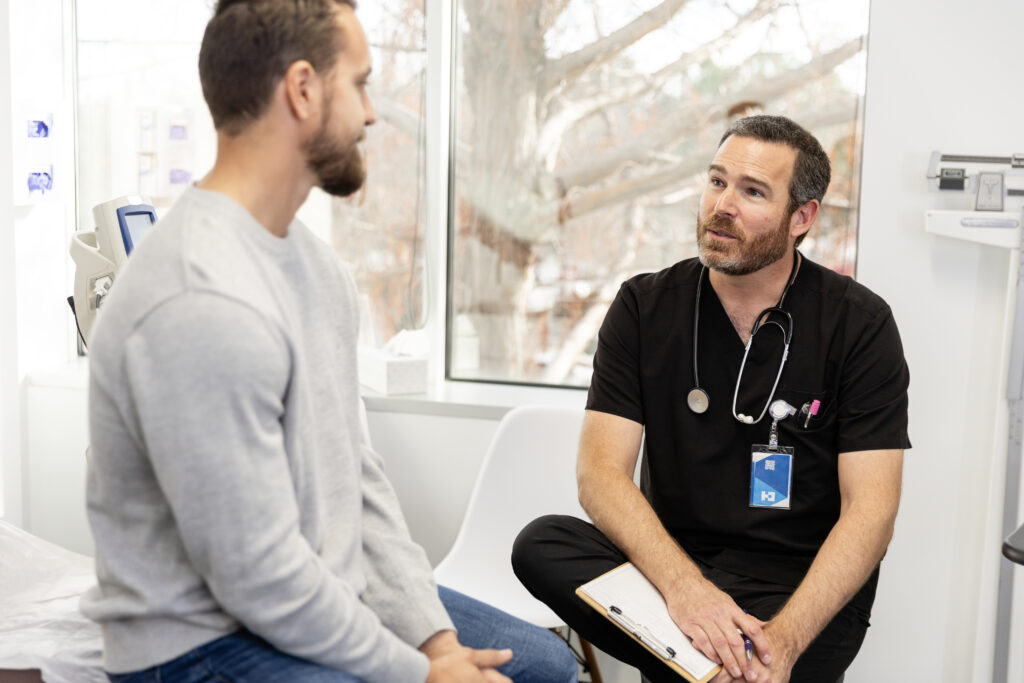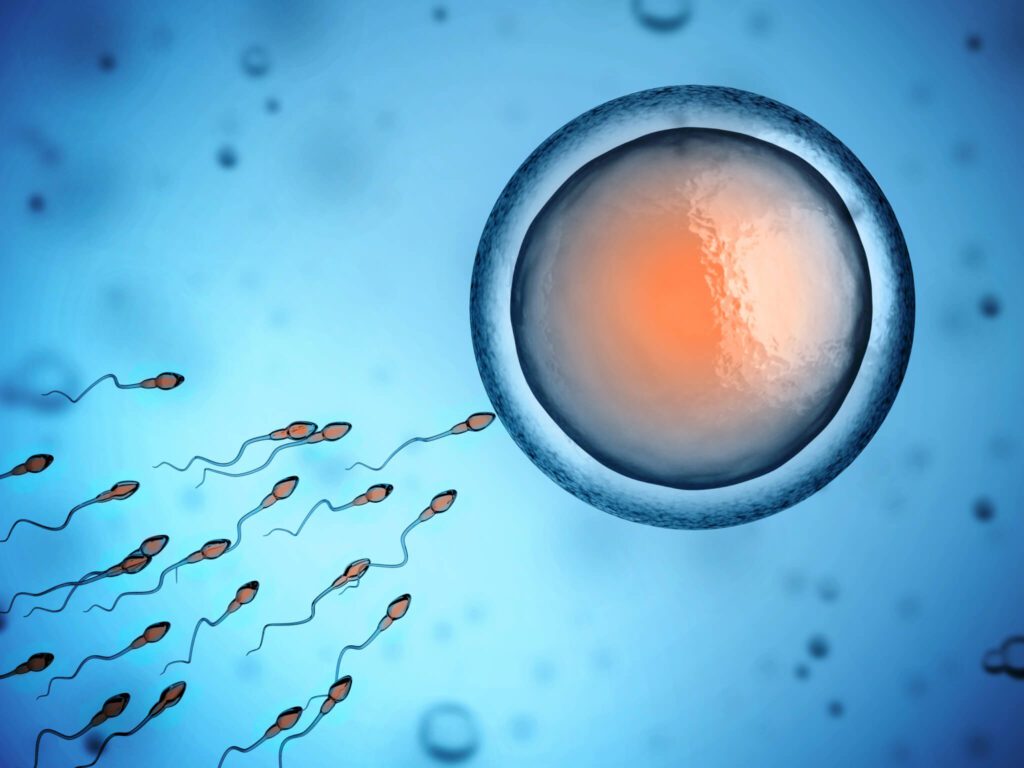Starting Your IVF Journey
If you’ve been trying to conceive and it hasn’t gone the way you hoped—you’re not alone. Many individuals and couples face fertility challenges, and there are many different paths to parenthood. In vitro fertilization (IVF) is one of the most effective and widely used fertility treatments, helping people grow their families every day.
IVF works by combining eggs and sperm in a laboratory to create embryos. Those embryos are then transferred into the uterus to try to achieve pregnancy. While every journey is unique, IVF can be a hopeful next step for many people.

Is IVF Right for You?
IVF may be the right option if you’ve been trying to conceive for six months to a year without success, or if you know you’ll need medical support to build your family. It’s also commonly used by individuals and couples—both heterosexual and LGBTQ+—who haven’t had success with other fertility treatments like medicated cycles or IUI.
IVF is often recommended for people navigating challenges such as polycystic ovary syndrome (PCOS), endometriosis, low sperm count, or other reproductive health concerns. Whatever your reason for considering IVF, our goal is to meet you where you are and guide you forward with clarity and compassion.

What You Can Expect from the IVF Process
Your IVF journey is personal—and we're here to support you at every step. Here's an overview of what the process typically looks like, so you can feel more prepared and confident moving forward.

Consultation & Testing
Your journey begins with a virtual one-on-one consultation with a fertility specialist. This is where we’ll learn about your medical history, discuss your goals, and begin building a plan that’s tailored just for you. You’ll also complete some testing, including blood work and an ultrasound, to assess hormone levels, ovarian reserve, and reproductive health. This helps us create the most effective and personalized treatment path.

Ovarian Stimulation
Next, you’ll take hormone medications for about 10–14 days to encourage your ovaries to develop multiple eggs. You’ll come in regularly for monitoring so we can track your progress and adjust your medication if needed. We’ll be with you every step of the way, making sure you feel informed, supported, and cared for.

Egg Retrieval
Once your eggs are ready, you’ll come in for a short, minimally invasive procedure under anesthesia. Using ultrasound guidance, your doctor will collect the mature eggs using a thin needle. Most people feel little to no discomfort and are able to go home the same day.

Fertilization & Embryo Development
Your eggs will be combined with sperm in our lab to create embryos. Over the next few days, our embryologists will monitor their development closely. We’ll talk with you about which embryos are progressing and may recommend genetic testing to help determine the best one(s) for transfer.

Embryo Transfer
A healthy embryo will be selected and gently transferred into your uterus using a thin, soft catheter. This procedure is quick, comfortable, and doesn’t require anesthesia. You’ll rest for a short time afterward before heading home.

The Two-Week Wait
This part of the process can feel the hardest—waiting. For the next couple of weeks, you’ll continue taking prescribed hormones and give your body time to support implantation. We know how emotional this stretch can be, and we’re here for you with support and guidance while you wait.

Pregnancy Test
After the two-week wait, it’s time for your pregnancy test. If it’s positive, we’ll celebrate with you and guide you into prenatal care. If it’s not the result you were hoping for, we’ll talk through the next steps—whether that’s trying again or exploring other options. No matter what, you won’t have to face it alone.
Common IVF FAQs
A single IVF cycle typically takes 4-6 weeks from ovarian stimulation to embryo transfer. However, multiple cycles may be needed to achieve pregnancy. After the transfer, a two-week waiting period follows before taking a pregnancy test. If embryos are frozen for future use, the timeline may be extended based on your treatment plan.
While IVF is generally well-tolerated, some discomfort can occur. Ovarian stimulation injections may cause mild bloating or tenderness. The egg retrieval procedure is performed under light sedation, so you won’t feel pain during it, though some cramping may occur afterward. The embryo transfer is a quick and painless procedure, similar to a pap smear. If any part of the process causes extreme physical discomfort, please let your care team know immediately.
The cost of IVF varies based on factors such as medications, additional procedures (like genetic testing), and insurance coverage. Many clinics offer financing options or package plans to make treatment more accessible. Our team can provide a detailed breakdown of costs and discuss financial assistance options.
The number of embryos transferred depends on factors such as age, embryo quality, and previous IVF history. In most cases, one embryo is transferred to reduce the risk of multiple pregnancies. Your doctor will discuss the best approach based on your specific circumstances.
If you have additional embryos after your IVF cycle, they can be frozen for future use. This allows for additional attempts at pregnancy without needing to go through another full IVF cycle. You can also choose to donate them to another family or allow them to be used for research purposes.
IVF is a safe and well-established procedure, but like any medical treatment, it carries some risks. Potential side effects include mild bloating, cramping, or mood changes from hormone medications. More serious risks, such as ovarian hyperstimulation syndrome (OHSS) or multiple pregnancies, are rare and carefully monitored by your doctor.





